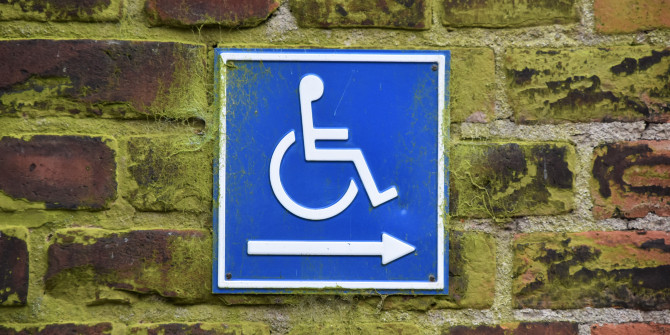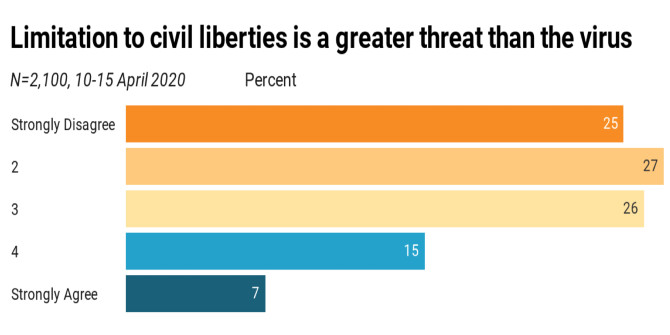 Monica Langella discusses some potential negative effects of the pandemic on higher education, particularly those pertaining to online assessment, university offers, and labour market outcomes. She offers evidence-based suggestions for how these impacts may be mitigated.
Monica Langella discusses some potential negative effects of the pandemic on higher education, particularly those pertaining to online assessment, university offers, and labour market outcomes. She offers evidence-based suggestions for how these impacts may be mitigated.
After some initial uncertainty, higher education institutions in the UK switched to online teaching in March, not without some debate accompanying the decision. Even if technology enables distance learning in a relatively smooth way, the fact that by the end of March most universities decided to close at least part of their campus facilities is likely to have a number of consequences.
Online assessments
First, campus closures and online teaching have direct consequences on exams and students’ preparation. The timing of the COVID-19 spread is affecting how final exams will be managed. One possibility is to eliminate final exams, but this would be especially problematic for students who were counting on this year’s results to increase their average performance and their final degree classification. Delaying the exams would also generate some problems, as this would lengthen the time to graduation and add uncertainty to the timing of the assessments, and could also affect students through learning loss.
The most realistic alternative is online assessments. But this also comes with some issues. The spread of COVID-19 is a stressful event that may have a direct effect on students’ preparation, while the closure of some campus facilities may also impact on their preparation. For example, library closures, though necessary, will be particularly disruptive for some students, and a lack of quiet space to study at home might be a relevant issue, particularly for students from low-income backgrounds. Also, access to technologies at home is particularly crucial in times of online lectures and classes, and this is unlikely to be evenly distributed across income groups. Moreover, online exams can have a higher risk of plagiarism, as students can have full access to the whole course material and to other resources.
The design of online assessments should take these aspects into account. To reduce inequalities among students, it may help to allow more time to complete the exam than usual, and to keep a high degree of flexibility in terms of how students can submit the exam. To reduce the risk of plagiarism, as trust relationships are not likely to change in the very short term and blocking students from accessing resources is technically unfeasible, assessments should take into account the fact that exams will be de facto open book, and focus more on the re-elaboration of the course material rather than a more simple recall of what was covered in class.
Entrance to university
The COVID-19 emergency is likely to affect students’ entrance to university. A-level exams are not going to take place this year. The qualifications’ watchdog, Ofqual, has consulted on how to receive grades in these qualifications through teachers’ evaluation of each students’ performance, based on information such as coursework, participation, and previous performance. A-level and equivalent exams have been traditionally used to evaluate university applications. Currently, most students have submitted their application for entry in September 2020 and universities are issuing offers. In a standard year, students will then sit their A-level exams and attempt to meet the requirements of the university offers. This year, as the exams will be substituted by more elaborate forms of grade prediction, it is hard to say how accurate the process will be. But past research shows that grade predictions are not particularly accurate. If this is confirmed by the new prediction process, this could worsen the probability of mismatch between students and universities, particularly in a context where universities may have a bigger incentive this year to make offers to marginal students, due to the possibility of a fall in international student numbers.
Mismatch refers to the situation where students enter ‘lower quality’ universities than their prior attainment would suggest they are able to. Research shows that this affects students from low-income groups more than those from high-income groups. Any increased mismatch could therefore have long-term impacts on social mobility. Furthermore, teacher discretion in the grading of high-stakes tests can have long-term consequences.
At the moment, the offer process is ongoing, but discussing alternative selection methods that overcome the lack of information related to A-level disruptions is still relevant, in order to prevent similar problems happening in the future. One possibility is that universities provide their own entry tests. An alternative is to extend the weight given to previous assessed results, such as GCSEs, so as to have a more comprehensive overview of the students’ school paths, which can complement the information coming from A-level coursework.
Labour market outcomes
The COVID-19 crisis could have a longer-term impact on current and future students. This emergency may have long-lasting consequences for the students’ labour market outcomes. Entering the labour market during a recession has persistent negative effects on future earnings. It is still early to measure the full extent of this kind of impact, as it depends on factors such as social distancing measures, how the virus will evolve, and the policies that governments put in place to counteract the economic disruption due to COVID-19.
Related to this, the current crisis may also have an impact on future students. On one hand, the expected recession may, in fact, induce more people to enter or stay in university, as investments in education tend to be countercyclical. On the other hand, foreign student numbers may decrease due to travel limits. Foreign students are a substantial proportion of the student population in UK universities (10% on average in 2016/17), and tend to contribute disproportionately to university budgets as they are subject to higher fees. The impact may be different across institutions as the prevalence of foreign students is quite heterogeneous. For instance, foreign students tend to be over-represented in Russell group institutions (14% of the students’ population according to 2016/17 data).
Due to the different fees imposed on home and overseas students, a change in the balance between the two may have disruptive effects on the budgets of UK higher education institutions. Increased competition for university entrants has brought back the discussion on capping the number of entrants at the institution level – the cap, in place until 2015, limited the number of home students that a university could enrol, and was set centrally by the government. The introduction of caps may have different impacts across institutions, with higher binding effects on those that are perceived as more attractive, which would then not be able to balance the loss of international students by admitting more home students.
Preventing universities from attracting more students may, though, have a number of side effects, in particular if it forces universities to set their numbers to a sub-optimal level, or if there are distortionary effects on the matching of students to universities (i.e. preventing more students from getting to their top choice of university). Capping student numbers at low levels may be financially disruptive for some universities and lead to renewed demands for increasing the fee limits, so, overall, it may be problematic to set limits to enrolment that are too low and do not take into account the potential reduction of the number of foreign students.
Overall higher education is severely affected by the COVID-19 crisis and mitigating the long-term effects on students and institutions depend on effective policy measures in the short and medium term.
______________________
 Monica Langella is Research Officer for the Community Programme at the LSE’s Centre for Economic Performance.
Monica Langella is Research Officer for the Community Programme at the LSE’s Centre for Economic Performance.
All articles posted on this blog give the views of the author(s), and not the position of LSE British Politics and Policy, nor of the London School of Economics and Political Science. Featured image credit: by Nathan Dumlao on Unsplash.







